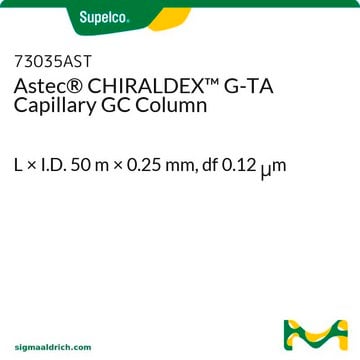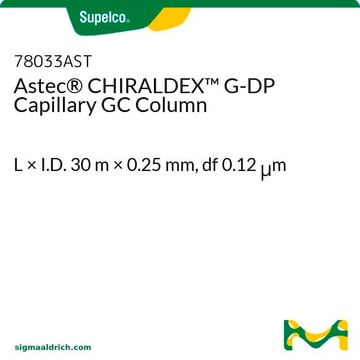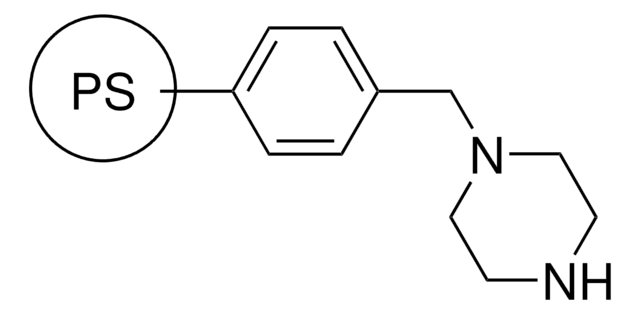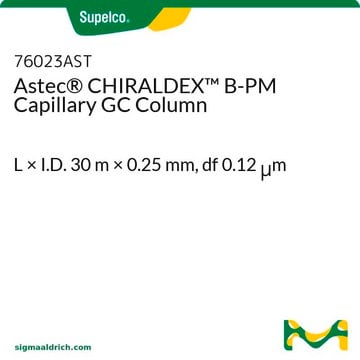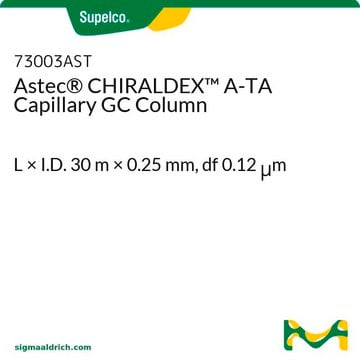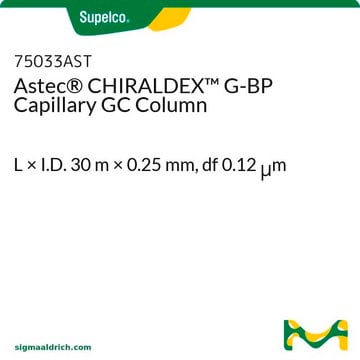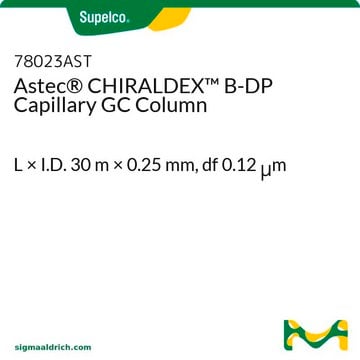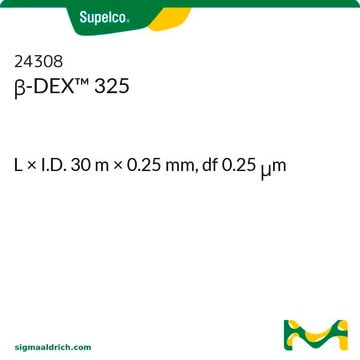73033AST
Astec® CHIRALDEX™ G-TA Capillary GC Column
L × I.D. 30 m × 0.25 mm, df 0.12 μm
Sinónimos:
GC column, chiral, gamma-dextran
About This Item
Productos recomendados
material
fused silica
Quality Level
description
GC capillary column
packaging
pkg of 1 ea
parameter
-10-180 °C temperature (isothermal or programmed)
Beta value
500
df
0.12 μm
technique(s)
gas chromatography (GC): suitable
L × I.D.
30 m × 0.25 mm
matrix active group
non-bonded; 2,6-di-O-pentyl-3-trifluoroacetyl derivative of γ-cyclodextrin phase
application(s)
agriculture
chemicals and industrial polymers
cleaning products
clinical
cosmetics
environmental
flavors and fragrances
food and beverages
forensics and toxicology
life science and biopharma
personal care
pharmaceutical (small molecule)
column type
capillary chiral
separation technique
chiral
¿Está buscando productos similares? Visita Guía de comparación de productos
General description
Application
Chem/Phys Resistance
- -10 °C to 180 °C isothermal and programmed
Other Notes
Legal Information
Elija entre una de las versiones más recientes:
¿Ya tiene este producto?
Encuentre la documentación para los productos que ha comprado recientemente en la Biblioteca de documentos.
Los clientes también vieron
Artículos
Chromatographic enantiomeric separation of amino acids, like proline, is described for chiral GC analysis after derivatization.
Chromatographic enantiomeric separation of amino acids, like proline, is described for chiral GC analysis after derivatization.
Chromatographic enantiomeric separation of amino acids, like proline, is described for chiral GC analysis after derivatization.
Chromatographic enantiomeric separation of amino acids, like proline, is described for chiral GC analysis after derivatization.
Chromatograms
suitable for GCsuitable for GCsuitable for GCsuitable for GCMostrar másNuestro equipo de científicos tiene experiencia en todas las áreas de investigación: Ciencias de la vida, Ciencia de los materiales, Síntesis química, Cromatografía, Analítica y muchas otras.
Póngase en contacto con el Servicio técnico